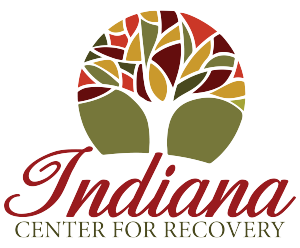About Indiana Center For Recovery – Alcohol & Drug Rehab Center – Bloomington
Indiana Center for Recovery offers substance use disorder treatment services for adults in Bloomington, Indiana. They provide various treatment services such as detox, outpatient rehab and residential rehab. The facility is accredited by the Joint Commission and has been
A Diverse Range of Amenities
One of the things I like most about this facility is the various amenities that are available at this location. In the residential program, clients have access to a gym for daily exercise and meditation sessions led by staff members. Indiana Center for Recovery also offers entertainment options such as a basketball court and pool tables.
Genetic Testing To Determine The Best Treatment
A unique service provided at this location is Genesight genetic testing. The test is designed to identify which mental health medications are likely to work best for you. Mental health disorders can make it difficult for clients to focus on changing their habits and developing coping mechanisms as a part of their addiction recovery.
After the ideal medication is identified for you, a doctor will provide you with a customized prescription. The prescription medications that might be provided to you include anti anxiety medication, antidepressants, and mood stabilizers.
Addiction Care Tailored To Veterans
Indiana Center for Recovery provides personalized addiction care for veterans. Counselors will work with clients to address issues such as trauma and chronic pain.
You’ll be housed with other first responders and veterans as the staff helps you heal through therapeutic approaches such as transcranial magnetic stimulation and eye movement desensitization and reprocessing. TMS is a procedure that stimulates your brain and helps to improve symptoms of depression.
Recovering Near Indianapolis
Bloomington is just an hour away from various city attractions in Indianapolis, Indiana. Some sober activities that you might enjoy include spending a day at White River State Park or paddle boating at Central Canal.
Facility Overview
Latest Reviews
See AllRehab Score
Gallery



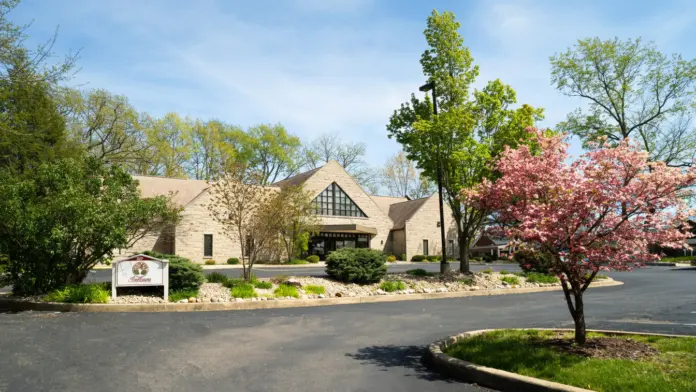
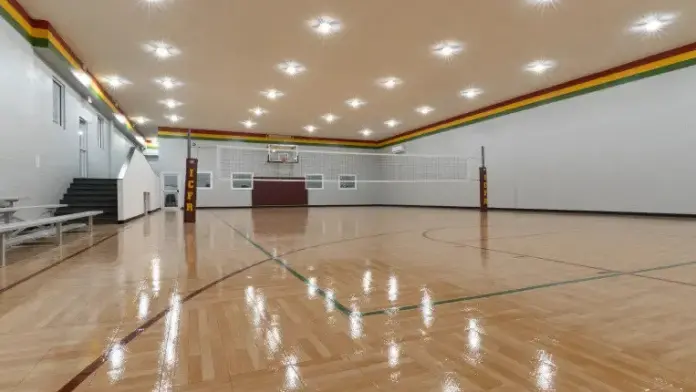
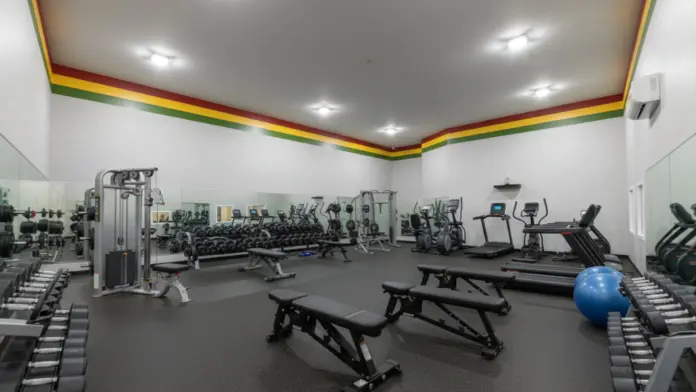
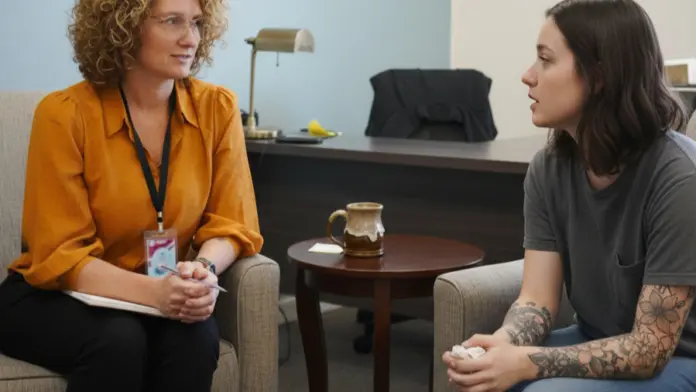
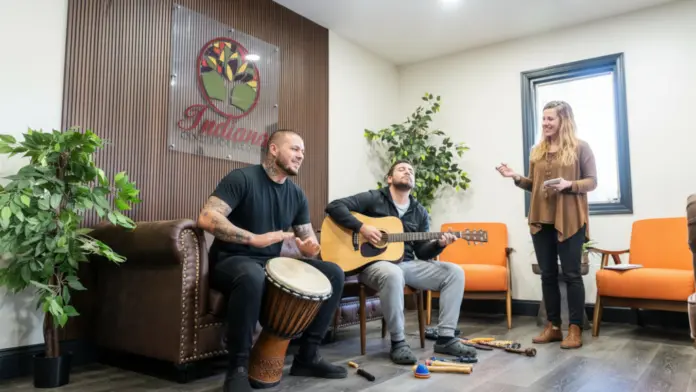
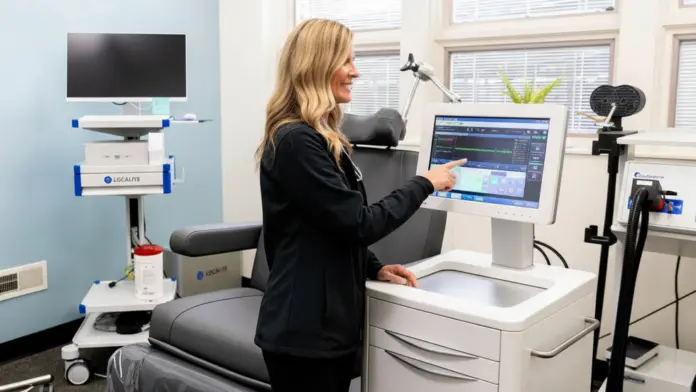
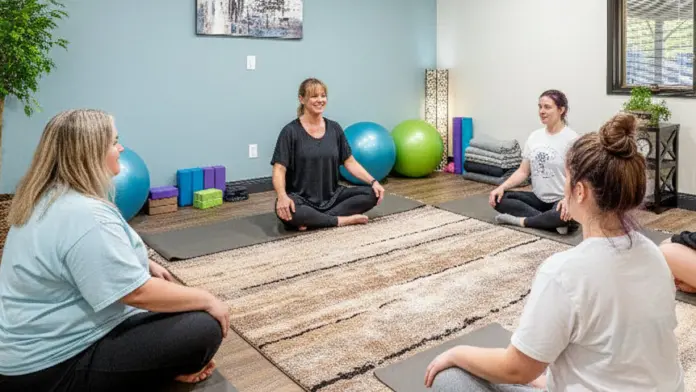
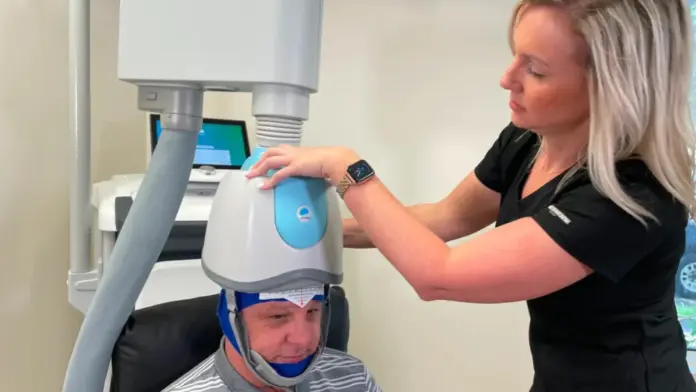
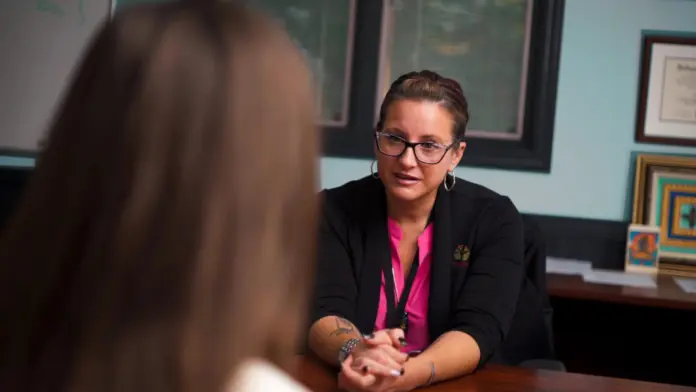
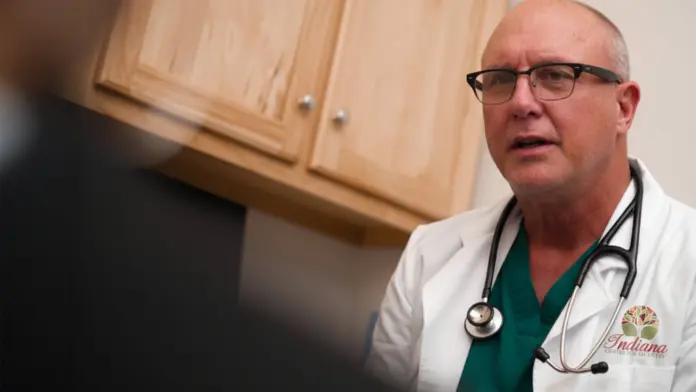
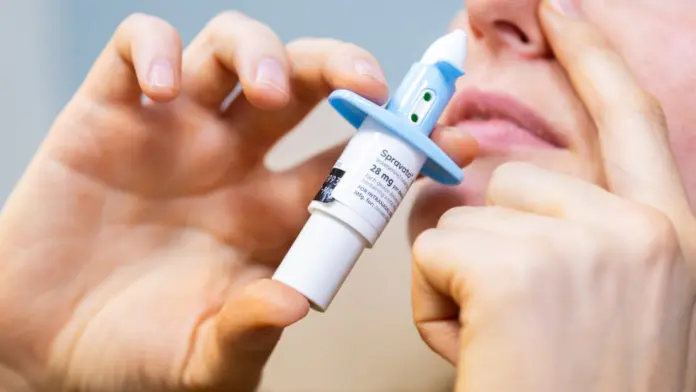
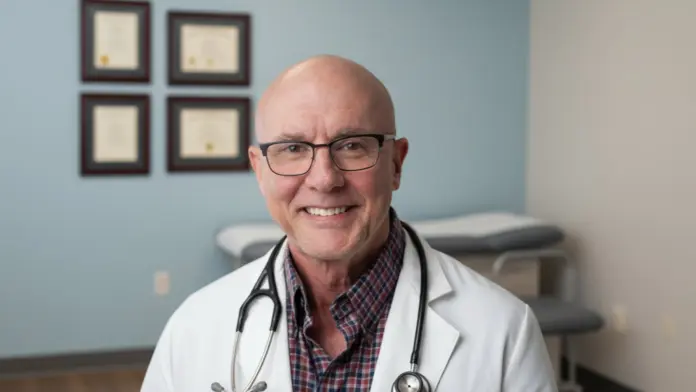
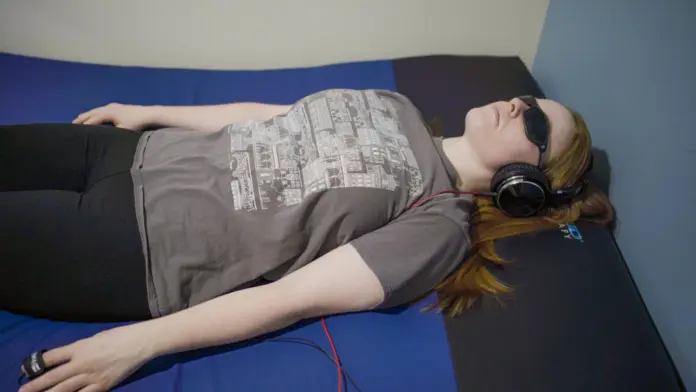
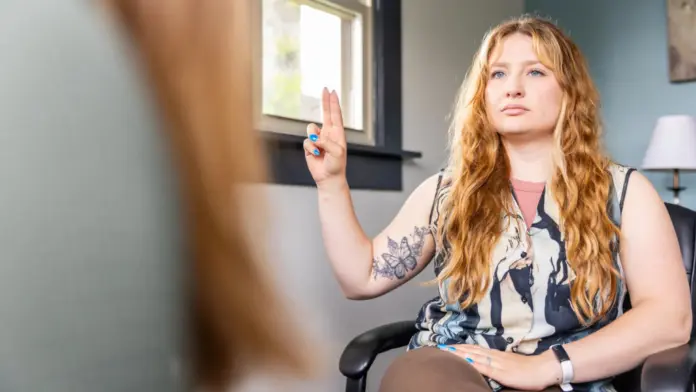
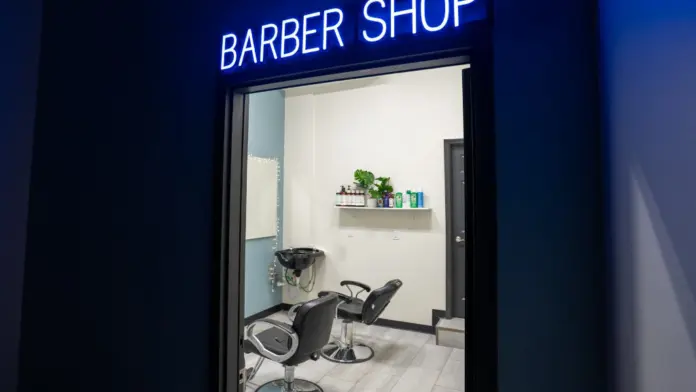
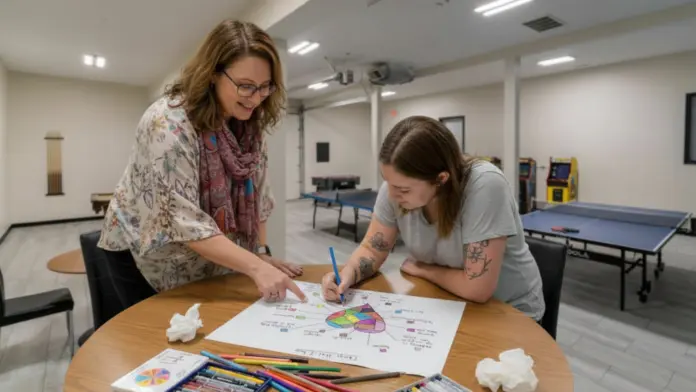
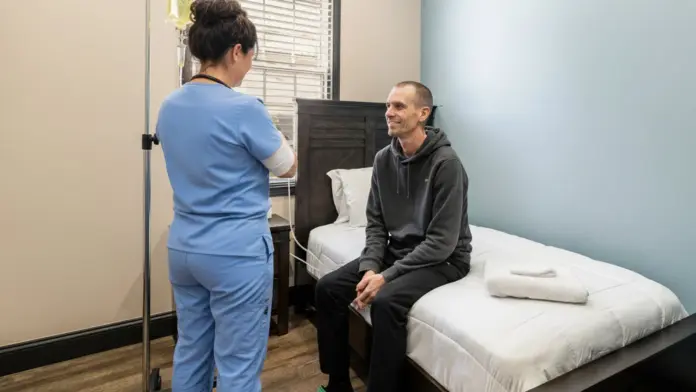
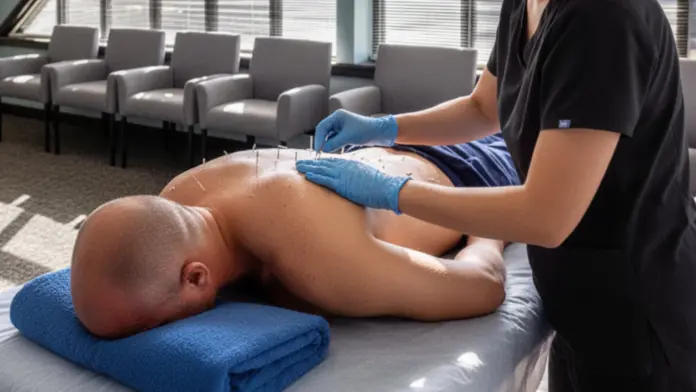
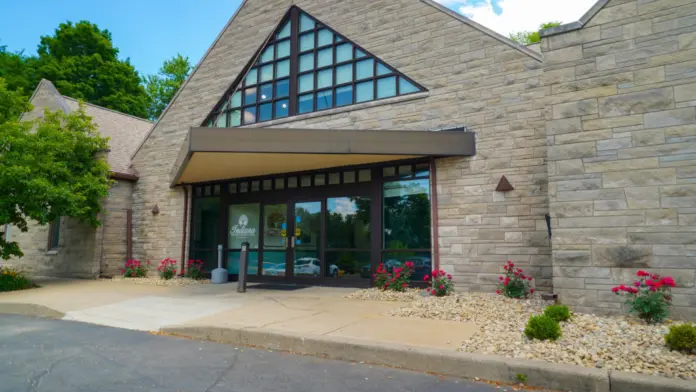
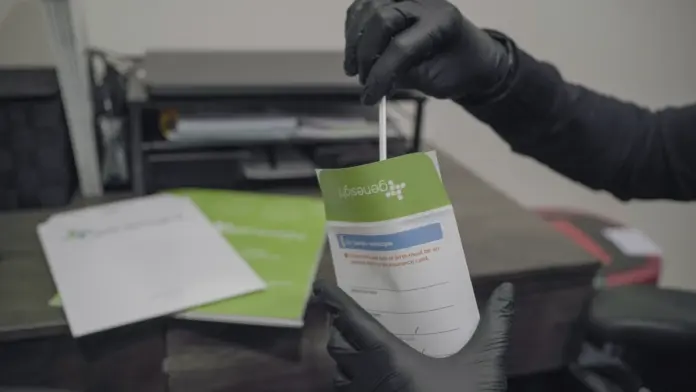
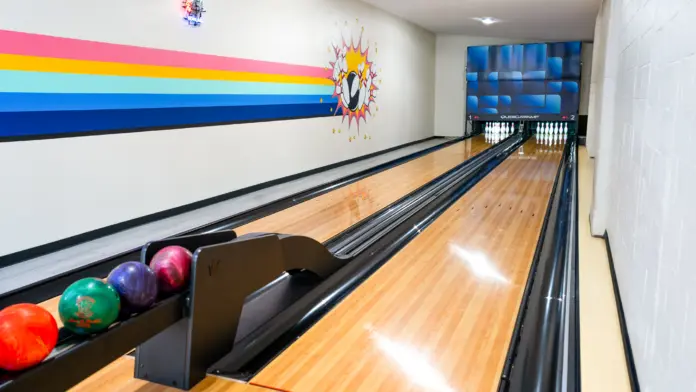
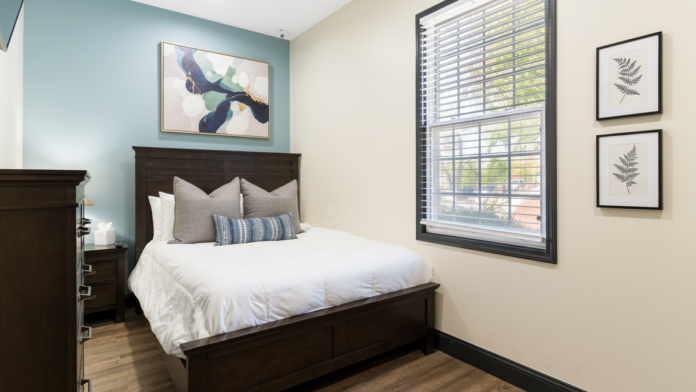
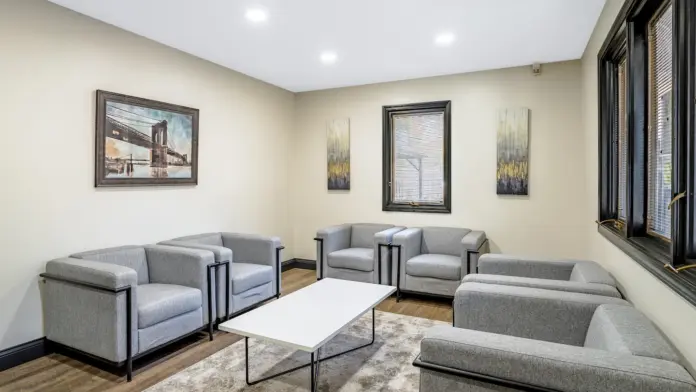
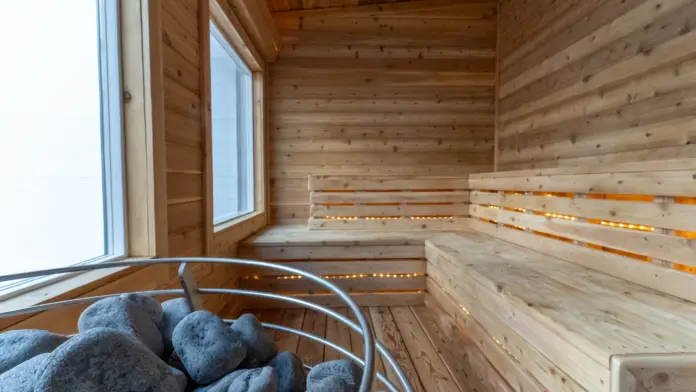
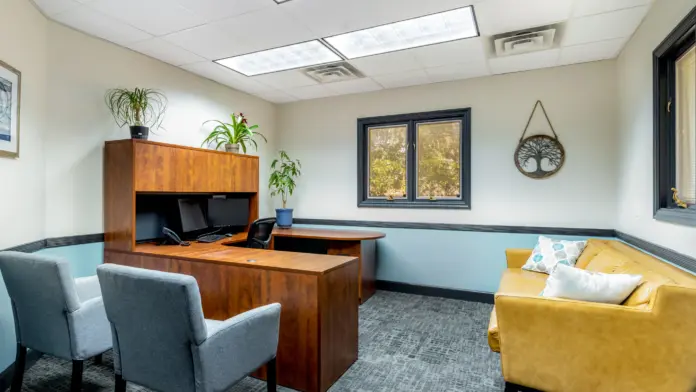
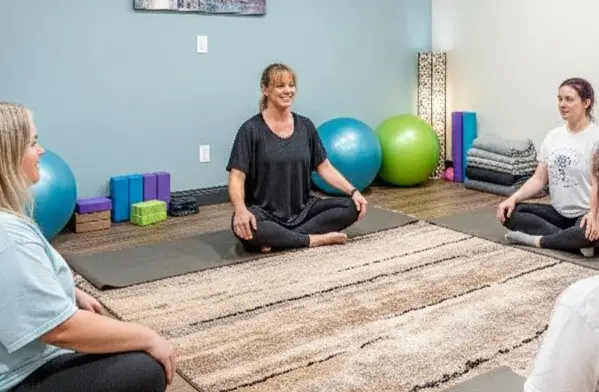
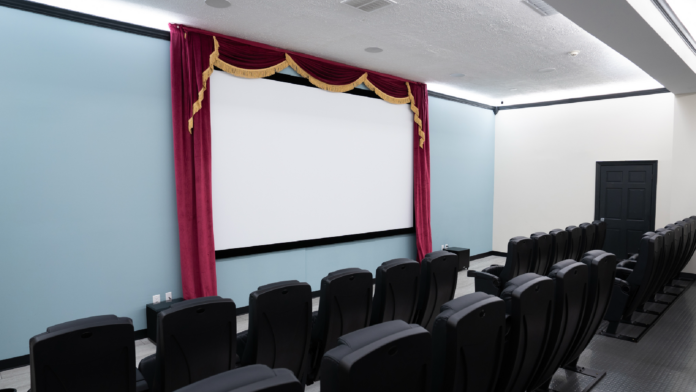


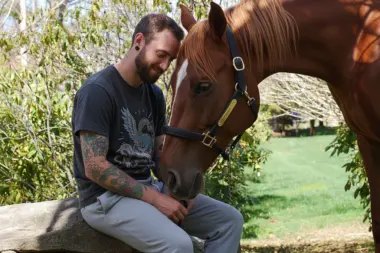

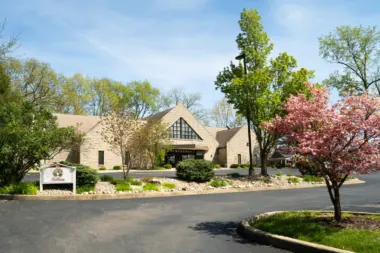
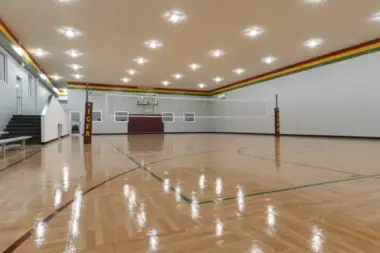
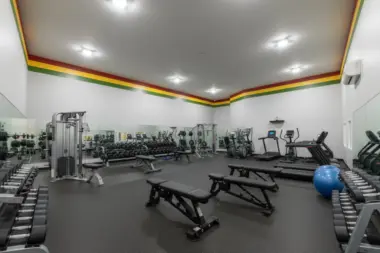
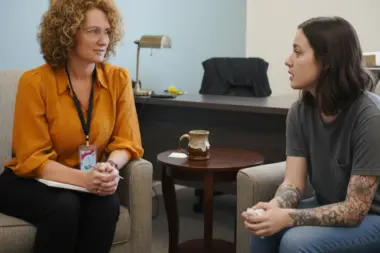
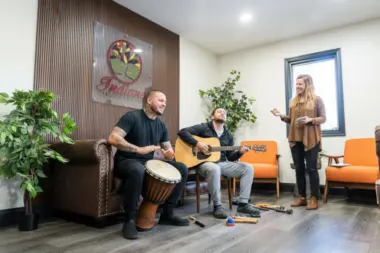
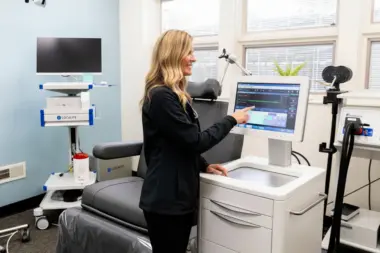
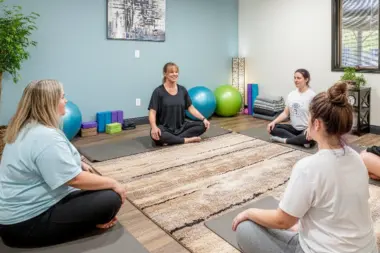
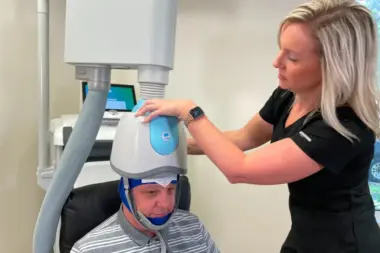
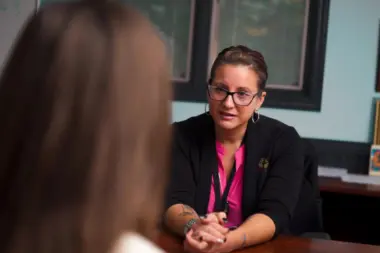
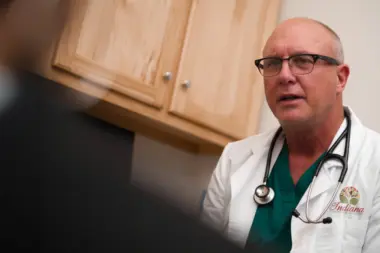
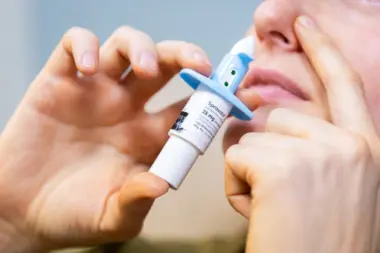
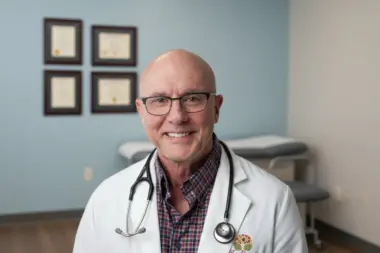
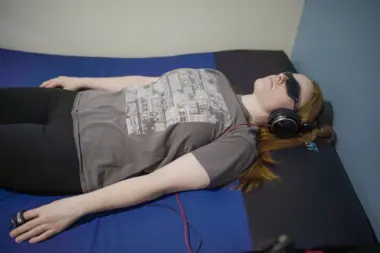
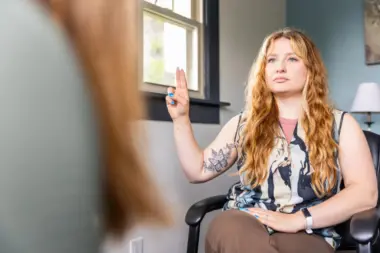
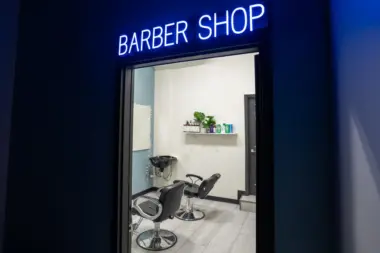
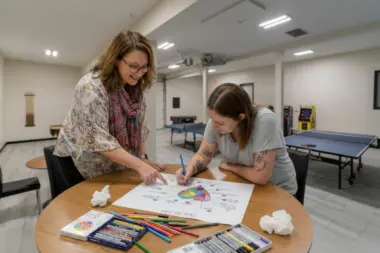
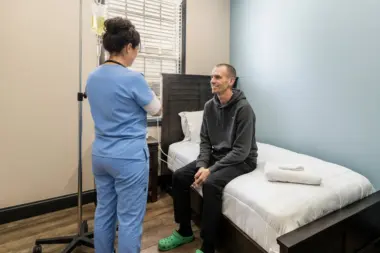
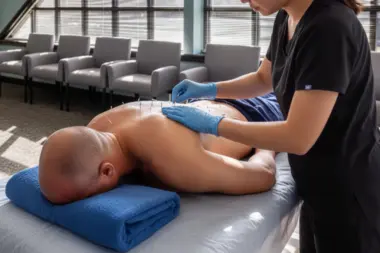
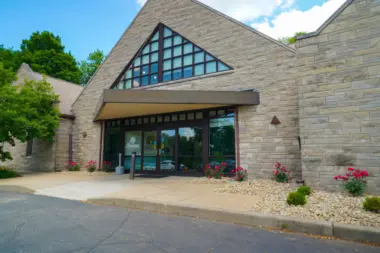
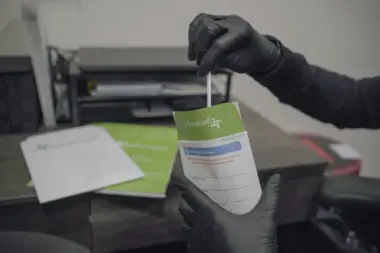
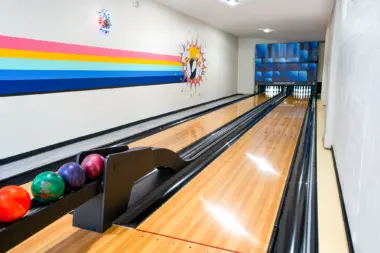

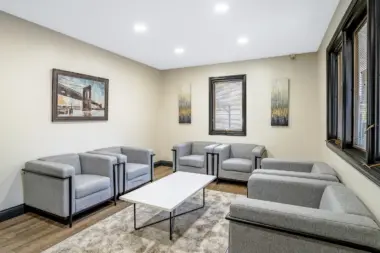

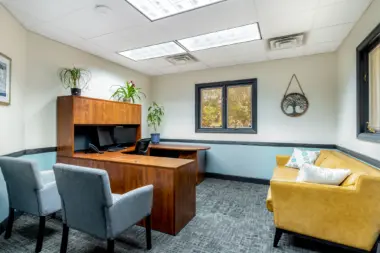
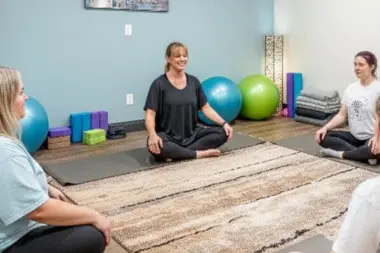
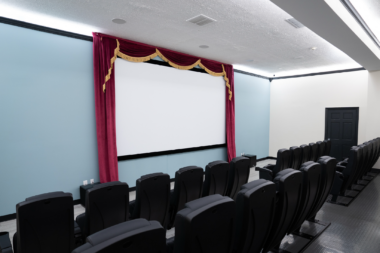
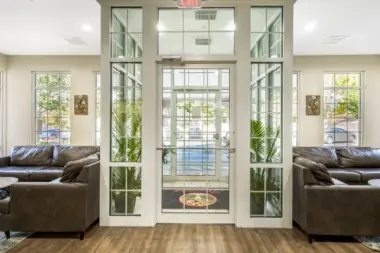
Accepted Insurance




















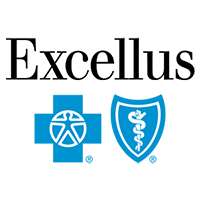
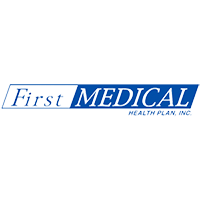
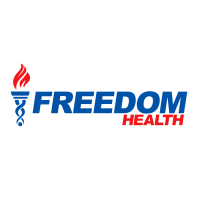


















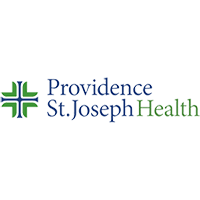

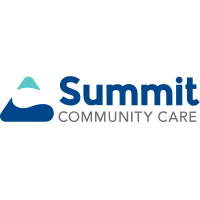

Other Forms of Payment
Private insurance refers to any kind of healthcare coverage that isn't from the state or federal government. This includes individual and family plans offered by an employer or purchased from the Insurance Marketplace. Every plan will have different requirements and out of pocket costs so be sure to get the full details before you start treatment.
Self-pay involves paying for treatment out of your own pocket. You can use savings or credit, get a personal loan, or receive help from family and friends to fund your treatment. If you don't have insurance or your insurance plan doesn't cover a specific program, self-pay can help ensure you still get the care you need.
Sliding scale payments are based on a client's income and family size. The goal is to make treatment affordable to everyone. By taking these factors into account, addiction recovery care providers help ensure that your treatment does not become a financial burden to you or your family, eliminating one barrier to care.
Addiction Treatments
Levels of Care
Residential treatment programs are those that offer housing and meals in addition to substance abuse treatment. Rehab facilities that offer residential treatment allow patients to focus solely on recovery, in an environment totally separate from their lives. Some rehab centers specialize in short-term residential treatment (a few days to a week or two), while others solely provide treatment on a long-term basis (several weeks to months). Some offer both, and tailor treatment to the patient's individual requirements.
12-step programs are addiction recovery models based on Alcoholics Anonymous (AA). A number of substance abuse programs (including some drug and alcohol rehab centers) use the 12 steps as a basis for treatment. Beginning steps involve admitting powerlessness over the addiction and creating a spiritual basis for recovery. Middle steps including making direct amends to those who've been hurt by the addiction, and the final step is to assist others in addiction recovery in the same way. 12-Step offshoots including Narcotics Anonymous (NA), Cocaine Anonymous (CA), Dual Recovery Anonymous (DRA), Sex and Love Addicts Anonymous (SLAA) and Gamblers Anonymous (GA).
Intensive Outpatient Programs (IOP) are for those who want or need a very structured treatment program but who also wish to live at home and continue with certain responsibilities (such as work or school). IOP substance abuse treatment programs vary in duration and intensity, and certain outpatient rehab centers will offer individualized treatment programs.
Outpatient Programs (OP) are for those seeking mental rehab or drug rehab, but who also stay at home every night. The main difference between outpatient treatment (OP) and intensive outpatient treatment (IOP) lies in the amount of hours the patient spends at the facility. Most of the time an outpatient program is designed for someone who has completed an inpatient stay and is looking to continue their growth in recovery. Outpatient is not meant to be the starting point, it is commonly referred to as aftercare.
Completing a drug or alcohol rehab program shouldn't spell the end of substance abuse treatment. Aftercare involves making a sustainable plan for recovery, including ongoing support. This can include sober living arrangements like halfway houses, career counseling, and setting a patient up with community programs like Alcoholics Anonymous (AA) or Narcotics Anonymous (NA).
At certain points in the recovery process, it's important to have support available 24/7. 24-hour clinical care offers a safe environment in which to recover from drug or alcohol addiction in peace, knowing medical detox and other treatment will happen with professionals on hand.
When removing addictive substances from your body under the care of licensed medical professionals, the process is called medically assisted detox. Once you've become physically dependent on substances like alcohol, opioids, or benzodiazepines, quitting can be uncomfortable or even dangerous. To minimize risks to your health and overall discomfort, a team of medical professionals monitors you 24/7 and provides medications if necessary (like Suboxone or methadone) to ease potential symptoms of withdrawal.
A partial hospitalization program (PHP) can provide intensive rehab on a short-term basis. While PHP treatment typically requires a commute, telehealth may be available. PHP treatment costs can vary but are often covered by most insurance. The program duration can vary to meet your specific needs and require you to meet for a minimum of 20 hours a week for an average of 90 days. PHP Treatment services often include relapse prevention strategies, medication management, individual and group counseling, and other behavioral therapy interventions.
When families plan a drug intervention in Indiana, the goal is to create self-awareness in their loved one, so they acknowledge the need for treatment and get help. A professional interventionist can work with the individual's family members to organize this intervention and provide direction for follow-up. During the intervention, loved ones share how the individual's substance abuse has affected them, and the interventionist adds a clinical perspective on how treatment can help the situation.
Treatments
The goal of treatment for alcoholism is abstinence. Those with poor social support, poor motivation, or psychiatric disorders tend to relapse within a few years of treatment. For these people, success is measured by longer periods of abstinence, reduced use of alcohol, better health, and improved social functioning. Recovery and Maintenance are usually based on 12 step programs and AA meetings.
For long-term recovery from drug addiction, drug rehab in Indiana is often key. This treatment gives individuals who are struggling with a substance use disorder the tools to manage their disorder and achieve long-term sobriety.
A combined mental health and substance abuse rehab has the staff and resources available to handle individuals with both mental health and substance abuse issues. It can be challenging to determine where a specific symptom stems from (a mental health issue or an issue related to substance abuse), so mental health and substance abuse professionals are helpful in detangling symptoms and keeping treatment on track.
Substance rehabs focus on helping individuals recover from substance abuse, including alcohol and drug addiction (both illegal and prescription drugs). They often include the opportunity to engage in both individual as well as group therapy.
In Indiana, dual-diagnosis addiction treatment programs address the unique needs of individuals with co-occurring substance use disorders and mental health conditions. Care levels include outpatient, inpatient, and partial hospitalization programs. Therapies like cognitive behavioral therapy, or dialectical behavioral therapy, trauma-informed therapy, and process groups address the co-occurring mental health disorders while achieving sobriety and promoting overall well-being. You'll also learn coping skills, relapse prevention strategies, and tools to enhance your relationships - all critical skills for long-term recovery.
Programs
Adult rehab programs include therapies tailored to each client's specific needs, goals, and recovery progress. They are tailored to the specific challenges adult clients may face, including family and work pressures and commitments. From inpatient and residential treatment to various levels of outpatient services, there are many options available. Some facilities also help adults work through co-occurring conditions, like anxiety, that can accompany addiction.
Men face specific challenges and concerns when seeking addiction treatment. Gender-specific recovery programs help them tackle these issues head-on in an environment that's focused, targeted, and distraction-free. It also gives them the opportunity to connect with and learn from other men who have been through a similar journey and can offer support for the next step.
Rehabs for women provide a safe, nurturing space for female clients to heal. These treatment programs consider the specific obstacles that women can face during recovery and place a special emphasis on mental, social, physical, and reproductive health. They explore how each woman's experience has shaped the trajectory of their substance use, addressing issues such as sexual abuse and past trauma.
Nearly one million adults age 65 and older live with a substance use disorder. Treatment providers who specialize in senior care understand the social, psychological, and physical effects of aging and how they relate to recovery. They can help clients address particular challenges and risks they may face as they get older such as overdosing and medication interactions and dependencies.
Clinical Services
Cognitive Behavioral Therapy (CBT) is a therapy modality that focuses on the relationship between one's thoughts, feelings, and behaviors. It is used to establish and allow for healthy responses to thoughts and feelings (instead of unhealthy responses, like using drugs or alcohol). CBT has been proven effective for recovering addicts of all kinds, and is used to strengthen a patient's own self-awareness and ability to self-regulate. CBT allows individuals to monitor their own emotional state, become more adept at communicating with others, and manage stress without needing to engage in substance abuse.
Creativity is inherently healing, and can help those in recovery express thoughts or feelings they might not otherwise be able to. Creative arts therapy can include music, poetry/writing, painting, sculpting, dance, theater, sandplay, and more. Unlike traditional art, the final product matters far less than the experience of creation and expression itself.
Dialectical Behavior Therapy (DBT) is a modified form of Cognitive Behavioral Therapy (CBT), a treatment designed to help people understand and ultimately affect the relationship between their thoughts, feelings, and behaviors. DBT is often used for individuals who struggle with self-harm behaviors, such as self-mutilation (cutting) and suicidal thoughts, urges, or attempts. It has been proven clinically effective for those who struggle with out-of-control emotions and mental health illnesses like Borderline Personality Disorder.
Equine therapy, aka equine-assisted therapy (EAT), is a form of experiential therapy that involves interactions and activities with horses. It does not necessarily involve riding horses, but all activities related to horses, such as feeding, grooming, haltering and leading them. A mental health professional frequently oversees the activities (often in conjunction with a horse professional), and helps patients process their thoughts, feelings, and behavior patterns during and/or after the interaction.
Experiential therapy is a form of therapy in which clients are encouraged to surface and work through subconscious issues by engaging in real-time experiences. Experiential therapy departs from traditional talk therapy by involving the body, and having clients engage in activities, movements, and physical and emotional expression. This can involve role-play or using props (which can include other people). Experiential therapy can help people process trauma, memories, and emotion quickly, deeply, and in a lasting fashion, leading to substantial and impactful healing.
EMDR is a therapeutic modality originally developed to help process trauma. In an EMDR session, a patient is prompted to undergo eye movements that mimic those of REM sleep. This is accomplished by watching a therapist's finger move back and forth across, or following a bar of light. The goal is repetitive sets of eye movements that help the brain reprocess memory, which can significantly reduce the intensity of remembered traumatic incidents. Associated memories can heal simultaneously, leaving patients significantly calmer, more stable, and more emotionally relaxed.
Research clearly demonstrates that recovery is far more successful and sustainable when loved ones like family members participate in rehab and substance abuse treatment. Genetic factors may be at play when it comes to drug and alcohol addiction, as well as mental health issues. Family dynamics often play a critical role in addiction triggers, and if properly educated, family members can be a strong source of support when it comes to rehabilitation.
Group therapy is any therapeutic work that happens in a group (not one-on-one). There are a number of different group therapy modalities, including support groups, experiential therapy, psycho-education, and more. Group therapy involves treatment as well as processing interaction between group members.
In individual therapy, a patient meets one-on-one with a trained psychologist or counselor. Therapy is a pivotal part of effective substance abuse treatment, as it often covers root causes of addiction, including challenges faced by the patient in their social, family, and work/school life.
Motivational Interviewing (MI) is a clinical approach to helping people with substance abuse issues and other conditions shift behavior in positive ways. It is more goal-oriented than traditional psychotherapy, as MI counselors directly attempt to get clients to consider making behavioral change (rather than wait for them to come to conclusions themselves). Its primary purpose is to resolve ambivalence and help clients become able to make healthy choices freely.
Trauma therapy addresses traumatic incidents from a client's past that are likely affecting their present-day experience. Trauma is often one of the primary triggers and potential causes of addiction, and can stem from child sexual abuse, domestic violence, having a parent with a mental illness, losing one or both parents at a young age, teenage or adult sexual assault, or any number of other factors. The purpose of trauma therapy is to allow a patient to process trauma and move through and past it, with the help of trained and compassionate mental health professionals.
To function properly, your body must have nutritional balance. Addiction throws off this balance by depleting your body of essential nutrients. Nutrition therapy aims to restore this balance by providing a healthy diet that supports healing and long term sobriety.
Recreational therapy integrates structured activities into a holistic treatment program to help promote your physical and mental health and well being. You might engage in sports, creative arts, or outdoor adventures as a positive outlet for your stress and emotions. This helps you develop new interests and build a supportive network that helps you maintain long term sobriety.
During trauma therapy in Indiana, your therapist helps you process traumatic experiences and learn how they affect your emotional, mental, and physical responses. You learn effective coping strategies that help to reduce the symptoms and improve your mental health and well being.
Amenities
-
Acupuncture Room
-
Art Activities
-
Basketball Court
-
Executive Setting
-
Gym
-
Luxury Accommodations
-
Meditation Room
-
Music Room
-
Private Rooms
-
Private Setting
-
Residential Setting
-
Volleyball Court
-
Yoga Studio
Staff & Accreditations
Staff
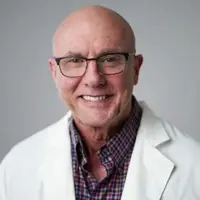
Dr. Michael Kane, Chief Medical Director & Psychiatrist
Dr. Kane is board-certified in both Family Medicine and Psychiatry and an award-winning graduate of the Indiana University School of Medicine. With extensive experience in integrative psychiatric care, he helps patients achieve behavioral balance, emotional stability and lasting well-being. Dr. Kane takes a personalized approach to treatment, combining medical expertise with innovative therapies to set patients up for long-term success. His work bridges the gap between physical and mental health, ensuring comprehensive, patient-focused care.
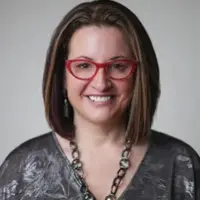
Jacqueline Daniels, LCSW, Executive and Clinical Director
Jackie Daniels is a person in long-term recovery, clinical social worker and recovery advocate. Jackie has worked since 2000 to prevent, treat, and provide support to individuals living in addiction recovery. Previous employers include Meadows Hospital, Centerstone, and in August, 2017, Jackie left Indiana University to join the Indiana Center for Recovery as the Executive Director. A clinical social worker since 2005, she also is adjunct faculty for the Indiana University School of Social Work, teaching courses on substance use and addictions practice. Jackie is a recovery advocate, providing the “Faces and Voices of Recovery” Recovery Messaging training to individuals wishing to challenge the stigma of addiction through the use of personal messaging. In 2012, Jackie’s story was featured on Lifetime’s Teen Trouble with Josh Shipp. In 2016, Jackie was responsible for bringing the overdose antidote, naloxone, to Indiana University, now available free and anonymously to IU students. Jackie works tirelessly to promote rights, compassion, and understanding for those in recovery from addiction. Most recently, Jackie was part of a cover story for Bloomington’s hometown magazine, Bloom Magazine called “Voices of Recovery.” “There is no person walking the face of the earth who demonstrates more courage, dignity, honesty, and integrity, than a person in recovery.”

Dr. Sal Raichbach LCSW, PsyD, Chief Clinical Officer
Dr. Sal has been a leader in behavioral health since the early 1990s, holding a Master’s degree in Clinical Social Work and a Ph.D. in Psychology. Licensed in Florida, New York, New Jersey, Pennsylvania and Wisconsin, he is also certified in forensic social work. With expertise spanning addiction, trauma and mental health treatment, Dr. Sal has been featured in over 140 major media outlets, including The Washington Post, Fox News, Healthline, Huffington Post, Teen Vogue and ABC News. His work continues to influence the evolving landscape of mental health care.

Lucy Weiss MA, CHRM, Vice President of Quality
With over 20 years of experience in mental health, Lucy is dedicated to ensuring that every patient receives safe, ethical and high-quality care. Her expertise in facility compliance, operational management and clinical quality assurance goes beyond regulations—she actively champions patient rights, dignity and safety at every level. By working closely with clinical and medical teams, she strengthens treatment integrity and accountability, giving patients confidence that their well-being is always the top priority.

Michele Vacarino LMHC-QS, Clinical Director
Michele Vacarino is a Licensed Mental Health Counselor and Qualified Supervisor with a dual Master’s Degree in Mental Health Counseling and Rehabilitation Counseling. She holds certifications in EMDR and DBT and has worked extensively with veterans and individuals struggling with PTSD. As someone in recovery herself, she understands the challenges of addiction and mental health firsthand. Her approach is direct, compassionate, and grounded in the truth that healing is always possible.
Accreditations

The Joint Commission, formerly known as JCAHO, is a nonprofit organization that accredits rehab organizations and programs. Founded in 1951, the Joint Commision's mission is to improve the quality of patient care and demonstrating the quality of patient care.
Joint Commission Accreditation: Yes
Accreditation Number: 607369

LegitScript has reviewed Indiana Center For Recovery – Alcohol & Drug Rehab Center – Bloomington as part of their certification program, and has determined that it meets the LegitScript standards for legality, safety and transparency.
LegitScript verified in November 2019

State Licenses are permits issued by government agencies that allow rehab organizations to conduct business legally within a certain geographical area. Typically, the kind of program a rehab facility offers, along with its physical location, determines which licenses are required to operate legally.
State License: Indiana

The Commission on Accreditation of Rehabilitation Facilities (CARF) is a non-profit organization that specifically accredits rehab organizations. Founded in 1966, CARF's, mission is to help service providers like rehab facilities maintain high standards of care.
CARF Accreditation: Yes
